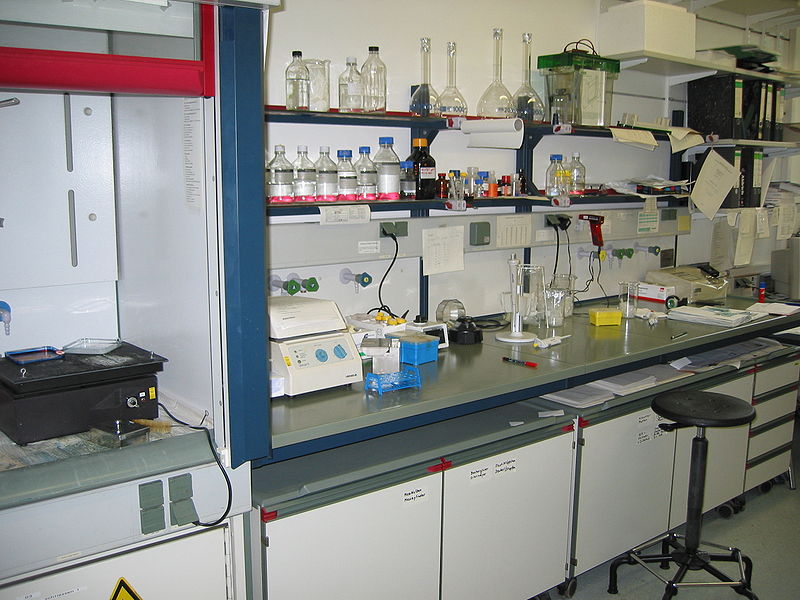 ...and made me a better person. Well, sort of.
...and made me a better person. Well, sort of.
I started writing this after learning that several of my SciBlings (Janet, Chad, RPM, Razib, Mike) were countering Steve G's argument that science labs, as an addition to "theory" or "lecture" courses are more or less a waste of time and money. I'm a biology student, and know little of the financial aspects of labs, but I do consider myself an expert on having labs; I've had to take little else in the past few years.
My argument is almost identical to the others regarding the necessity and integrity of labs, but I will point out one thing: Gimbel was right about non-science students being fascinated by science and not engaged by their intro profs. Because of my science column at the newspaper and the blog, I get questions from non-science major friends constantly about different aspects of science that they are fascinated by (most of which I cannot answer). I always take the time to at least point them in the right direction, and always ask, "Didn't you go over that in your intro biology/physics/chemistry class?" and the answer is usually, "Yeah, probably."
 I can't make an overarching positive statement about science labs. I've had good ones, I've had bad. I can remember trudging through thick bogs uncovering meter wide specimens of Sarracenia or spinning down my first vial of cellular components for analysis or peering into the churning gut of a termite; all experiences that drew me in further, engaged me, made me realize just why I chose biology as a major.
I can't make an overarching positive statement about science labs. I've had good ones, I've had bad. I can remember trudging through thick bogs uncovering meter wide specimens of Sarracenia or spinning down my first vial of cellular components for analysis or peering into the churning gut of a termite; all experiences that drew me in further, engaged me, made me realize just why I chose biology as a major.
But I can also remember drawing slide after slide of dead plant cells while thinking what a grand waste of my time and energy, yearning a break: an hour in Advanced News and Feature Writing.
Just like any course, it depends on the attitude of the professor and their personal expertise and passion for the work. That is when I absorb, when this woman or man in front of the class can bare a lucid sliver of why this subject is inherently important, why this is their life's work, their passion.
This especially goes for labs. I put off physics until my last two semesters for a reason; I didn't think I would get into it. But my prof is so charged about fundamental frequencies and double slit diffraction that the minutes fly by during lecture and lab. He knows how to reach his class while maintaining a rigorous methodology, and above all, teaching science. Luckily, this prof also teaches many of the non-science major science courses at Frostburg.
Evaluations of the course and its presenter are given at the end of every semester; why not include a survey? Ask the students what they thought would be covered but was not. You would probably get a number of "more beer" requests, but the few valid responses might give the prof and the administration a better idea of how to address students in the future. (A survey could be done at the beginning of the course as well; ask students what they would like to learn for the semester and see if some of the suggestions could be worked in - I know a lot of profs do this, but it would be neat to see it more often.)
To get rid of labs for non-science majors? Ridiculous. But like most areas of science communications, courses need to be revitalized for the non-science folks. That does not necessarily mean reducing the work or watering down "how science is done", but it does mean reevaluating the disconnect and trying to resolve it.
Lets face it science courses are not science. Science courses can be interesting and many labs can be pointless, but the most likely place for becoming conscious of what science is, and deeply understanding a problem, is in the lab.
I am on the tenure track at an Ivy league university. I came to science because of good labs, I will stay if I can give a similar experiences to students.
BTW, I went to The Evergreen State College
http://www.evergreen.edu/